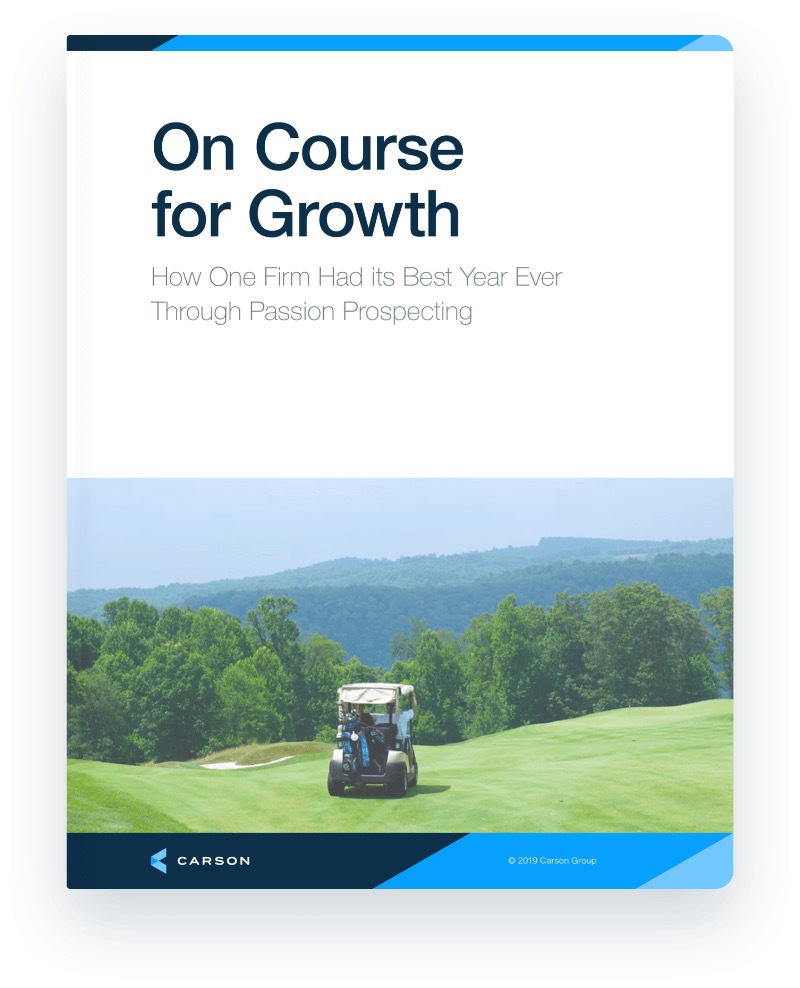Technology is constantly changing and always evolving. Advisors feel the pressure to stay on top of the latest trends in fintech and offer the best products for their clients. But if you’re chasing the tail of technology, you’ll end up falling down a rabbit hole of options or burning a hole in your wallet.
Don’t become Lewis Carroll’s Alice in the overwhelming fintech Wonderland. You don’t need to be on the bleeding edge of technology, you just need to be a fast follower. Don’t follow blindly, though. Be smart about the technology and vendors you get behind.
Look for vendors who offer a vast ecosystem. It’ll allow you the flexibility to build an API and data warehouse. After all, a solid foundation is important to have in a world of emerging technology.
Related Content: Advisor Case Study: Positioning for Tomorrow’s Client Landscape.
As technology evolves, more players will enter the field, causing disruption and perhaps oversaturation. How can advisors learn which technology will still be afloat – let alone exist – in a few years?
Do Your Due Diligence
To begin your due diligence process, you’ll want to accomplish three things up front:
- Reach out to your network administrators for recommendations on technology solutions or vendors.
- Conducted an informal internal audit to determine the most reasonable option based on your budget and needs.
- Research to see what technology solutions exist in our profession and what other companies are using.
You’ll need a general idea of the landscape that will ultimately lead to one of three options for your technology: Buy it, build it or partner with a firm that provides it. You can learn more about each of these options here. Each method requires different maintenance and cost levels, while some allow for better customization and integration. Know what your firm needs and can afford – price-wise and time-wise.
Keep API Top-of-Mind
API stands for application programming interface. It allows two applications to talk to each other. Think of API as the messenger that carries your request to an application and then carries the response back to you. In fintech, APIs pave the way for an overall better client experience.
Technology integration improves when software for different aspects of your firm, like portfolio building and customer relationship management (CRM), can talk to each other. APIs also provide easier access to data, allowing advisors the opportunity to better understand their clients and enhance the client experience.
Find out if technology vendors have open API and how they store and secure data. Leveraging a technology vendor’s API and data is crucial to your firm’s future and client experience. Make sure you’re partnering or selecting a vendor who’ll be around in a few years as technology evolves.
Ask the Right Questions
Innovation in technology is important. But it’s not defined by the next big thing – it means how you are better serving your clients. You can improve relationships with clients by establishing honesty up front with prospective technology vendors. Every advisor should ask a vendor these questions before dropping a dime – or a lot more – on fintech.
- Do you have an open API?
- Which type of API (Rest, SAML, etc.)?
- What is your process to provide API access to us?
- Is your API bi-directional?
- Please provide a list of your API endpoints.
- How often are you doing updates to your product and API?
- Please provide any API documentation you have.
- How many developers are dedicated to API development?
- What is your process for adding new features and API endpoints?
- What is your security review process?
- Please provide your business continuity plan.
- Do you have a dedicated TEST environment for your API?
- Do you have a dedicated development environment for your API?
- What is your testing process?
- Do you provide release notes prior to your builds?
- What support do you provide for our developers?
- What is included in your standard SLA?
- What service standards does your support team have, including your maximum response time?
- Do you have an advisory board that influences your product roadmap?
- Do you have a defined product roadmap that we are able to see?
- What is your data security policy?
- Where is your data hosted?
- How many milliseconds is your average API call?
- What level of data center is the data stored in?
- What outside API integrations do you currently offer?
- Do you provide data conversion as a service?
- If your API is partially bi-directional, can you define which points are writable?
Take the Next Step
Obviously, understanding and navigating APIs isn’t the strong suit of most financial advisors. However, finding someone on your team or a partner that you trust to handle these interviews is ideal.
Once you’ve completed your fintech due diligence by measuring the time and cost needed, finding stakeholders internally or externally that can meet your needs, and asked the proper questions of potential vendors it’s time to decide: Will you buy it, build it or partner with a company that can meet your needs?










